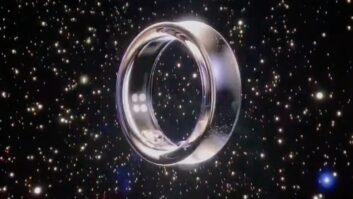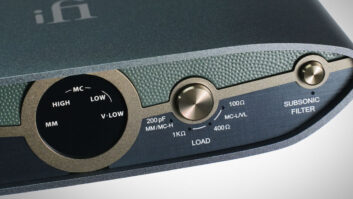Washington – The U.S. Dept. of Justice (DoJ) officially cleared the merger of Sirius Satellite Radio and XM Satellite Radio Monday, concluding that the proposed deal is not anti-competitive.
Further approval by the Federal Communications Commission (FCC) is now likely to follow suit, said analysts, which would give a green light to the long awaited merger valued at $5 billion.
“It’s very rare that the FCC would have a contradictory ruling,” said RBC Capital Markets analyst David Bank. He said approval could be in “days or the next quarter. My sense is the FCC is going to move relatively quickly.””
It is also possible the FCC could place stipulations on the deal, including that the companies be required to rent out a slice of spectrum to other parties, he noted.
The FCC said it had no comment on the timing of its decision, according to a spokeswoman, but Chairman Kevin Martin recently asked his staff to start drafting documents on the proposed merger. At an FCC press conference last week, Martin also said a decision may or may not come this quarter, the spokeswoman noted.
The Consumer Electronics Association quickly issued a statement applauding the DoJ decision and called on the FCC to move rapidly in its ruling.
However, the decision met with harsh disapproval by the National Association of Broadcasters (NAB), which has regularly petitioned the government to rule against the merger as anti-competitive.
“We are astonished that the Justice Department would propose granting a monopoly to two companies that systematically broke FCC rules for more than a decade. To hinge approval of this monopoly on XM and Sirius’s refusal to deliver on a promise of interoperable radios is nothing short of breathtaking,” said NAB Executive VP Dennis Wharton.
Sirius and XM distributors welcomed the news.
Jim Minarik, president and CEO of Directed Electronics, the distributor of Sirius products, said, “We are pleased to learn of the approval of the Sirius/XM merger by the Dept. of Justice and hope the FCC will quickly follow suit….While these two companies have been fierce competitors, we believe that by combining their forces, they will be much better positioned to win customers over from alternative forms of entertainment including terrestrial radio, MP3 players and all the other options available to consumers today.”
“We believe that this merger will allow the new entity to fuel market growth by eliminating content duplication…,” said Patrick Lavelle president and CEO of Audiovox, which is XM’s distributor.
Less approving was U.S. Electronics, which has filed numerous petitions with the FCC against the merger over the past year. The company issued a statement urging the FCC not to consent to the merger without a condition ensuring that any satellite radio hardware can access the satellite radio network in an open access format.
XM and Sirius’ board of directors have already approved the merger.
Sirius has said in the past that the merger could be finalized almost immediately following federal approval.
A statement from the DoJ said the following regarding its ruling:
“After a careful and thorough review of the proposed transaction, the Division concluded that the evidence does not demonstrate that the proposed merger of XM and Sirius is likely to substantially lessen competition, and that the transaction therefore is not likely to harm consumers.”
The DoJ also said, “Although the firms in the past competed to attract new subscribers, there has never been significant competition between them for customers who have already subscribed to one or the other service and purchased the requisite equipment. Also, competition for new subscribers is likely to be substantially more limited in the future than it was in the past.”
The DoJ also found reduced competition in the growing automotive channel because “XM and Sirius have entered into sole-source contracts with all the major automobile manufacturers that fix the amount of these subsidies and other pertinent terms through 2012 or beyond. Moreover, there was no evidence that competition between XM or Sirius beyond the terms of these contracts would affect customers’ choices of which car to buy. As a result, there is not likely to be significant competition between XM and Sirius for satellite radio equipment and service sold through the car manufacturer channel for many years.”
Regarding the retail channel the DoJ said, “The Division found that evidence developed in the investigation did not support defining a market limited to the two satellite radio firms, and similarly did not establish that the combined firm could profitably sustain an increased price to satellite radio consumers.”
Finally, it added, “Any inference of a competitive concern was further limited by the fact that a number of technology platforms are under development that are likely to offer new or improved alternatives to satellite radio. Most notable is the expected introduction within several years of next-generation wireless networks capable of streaming Internet radio to mobile devices.”













